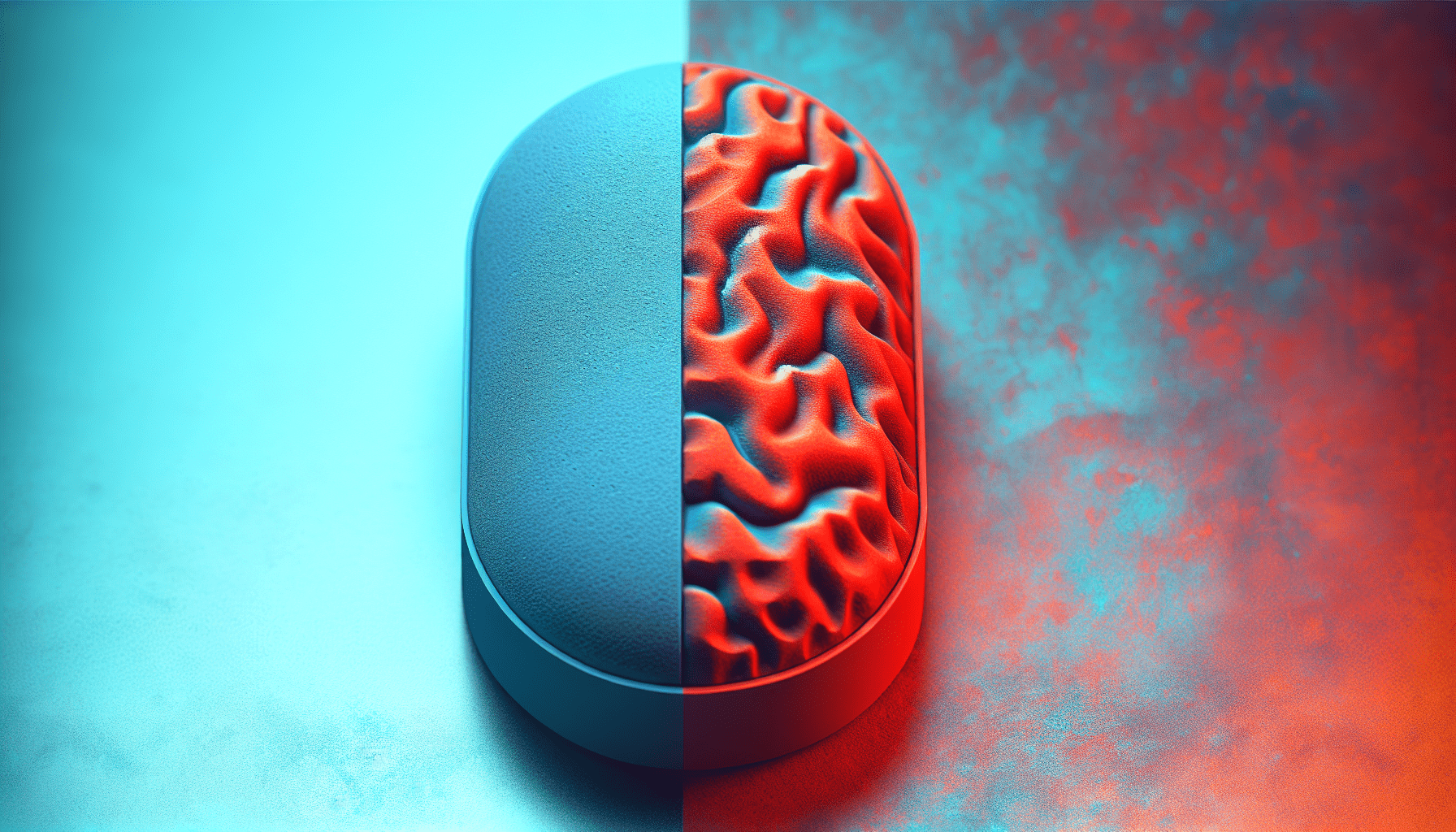In the latest edition of the Diagnostic and Statistical Manual of Mental Disorders (DSM-5), a new category of depression known as Disruptive Mood Dysregulation Disorder (DMDD) was introduced. This addition aimed to address the diagnosis and treatment of children who exhibit persistent irritability and frequent temper outbursts. DMDD provides a more specific framework for these symptoms that may have previously been lumped under other diagnoses, offering a clearer path for intervention and support for affected individuals. This new category represents a step towards a more nuanced understanding of depression and its manifestations.
What New Category Of Depression Was Introduced In The DSM-5?
Have you ever wondered what new category of depression was introduced in the DSM-5? Let’s explore the changes and updates in the latest edition of this important diagnostic manual.
Major Depressive Disorder with Mixed Features
One significant addition to the DSM-5 was the introduction of Major Depressive Disorder with Mixed Features. This new category recognizes the complexity of depression and the fact that it can manifest in different ways for different individuals.
Understanding Mixed Features
You may be wondering what exactly “mixed features” means in the context of Major Depressive Disorder. Essentially, it refers to the presence of manic symptoms during a major depressive episode. This could include symptoms such as elevated mood, increased energy, racing thoughts, and impulsivity.
Importance of Recognizing Mixed Features
Recognizing the presence of mixed features in depression is crucial for accurate diagnosis and treatment. Individuals experiencing mixed features may not fit neatly into the traditional diagnostic criteria for either major depression or bipolar disorder, making it essential for mental health professionals to have this additional category to work with.
Implications for Treatment
The introduction of Major Depressive Disorder with Mixed Features in the DSM-5 has important implications for treatment. Individuals who exhibit mixed features may require different approaches to therapy and medication than those with traditional major depression. By accurately identifying and categorizing this subgroup of patients, mental health professionals can tailor treatment plans to meet their specific needs.
Challenges in Diagnosis
Diagnosing Major Depressive Disorder with Mixed Features can be challenging due to the overlapping symptoms of depression and mania. Additionally, individuals experiencing mixed features may not always recognize or report their manic symptoms, further complicating the diagnostic process. It is essential for mental health professionals to conduct thorough assessments and consider the possibility of mixed features when evaluating patients for depression.
Differential Diagnosis
A key component of accurately diagnosing Major Depressive Disorder with Mixed Features is conducting a thorough differential diagnosis. This process involves ruling out other potential causes of the individual’s symptoms, such as substance abuse, medical conditions, or other mental health disorders. By carefully considering all possible contributing factors, mental health professionals can arrive at a more precise diagnosis.
Treatment Approaches
Once a diagnosis of Major Depressive Disorder with Mixed Features has been made, appropriate treatment approaches can be implemented. These may include a combination of therapy, medication, lifestyle changes, and other interventions tailored to the individual’s specific needs. The goal of treatment is to address both the depressive and manic symptoms effectively and improve overall well-being.
Therapy Options
Therapy is an essential component of treatment for Major Depressive Disorder with Mixed Features. Cognitive-behavioral therapy (CBT), interpersonal therapy, and other evidence-based approaches can help individuals navigate their complex symptoms and develop coping strategies. Therapy can also provide a safe space for individuals to explore their thoughts and emotions, leading to greater self-awareness and personal growth.
Medication Management
In some cases, medication may be necessary to address the symptoms of Major Depressive Disorder with Mixed Features. Antidepressants, mood stabilizers, and other psychiatric medications may be prescribed to help stabilize mood and improve overall functioning. It is essential for individuals to work closely with their healthcare provider to find the right medication regimen that works best for them.
Lifestyle Modifications
In addition to therapy and medication, lifestyle modifications can play a significant role in managing Major Depressive Disorder with Mixed Features. Regular exercise, healthy eating, adequate sleep, and stress management techniques can all contribute to improved mood and overall well-being. Integrating these lifestyle changes into daily routines can help individuals better manage their symptoms and live more fulfilling lives.
Support Systems
Building a strong support system is crucial for individuals living with Major Depressive Disorder with Mixed Features. Friends, family members, support groups, and mental health professionals can all provide valuable support and encouragement during challenging times. Having a network of people who understand and care can make a significant difference in an individual’s recovery journey.
Self-Care Practices
Practicing self-care is essential for individuals managing Major Depressive Disorder with Mixed Features. Engaging in activities that bring joy, relaxation, and fulfillment can help reduce symptoms of depression and mania. Whether it’s taking a walk in nature, reading a good book, or spending time with loved ones, self-care practices are an important part of maintaining mental health and well-being.
Seeking Help
If you or someone you know is struggling with symptoms of depression or manic episodes, it’s essential to seek help from a qualified mental health professional. Diagnosis and treatment of Major Depressive Disorder with Mixed Features require the expertise of trained professionals who can provide guidance, support, and personalized care. Remember, you don’t have to face these challenges alone.
By understanding the new category of Major Depressive Disorder with Mixed Features introduced in the DSM-5, you can better navigate the complexities of depression and seek appropriate care and support. Remember, your mental health is important, and there are resources available to help you on your journey toward healing and recovery.
